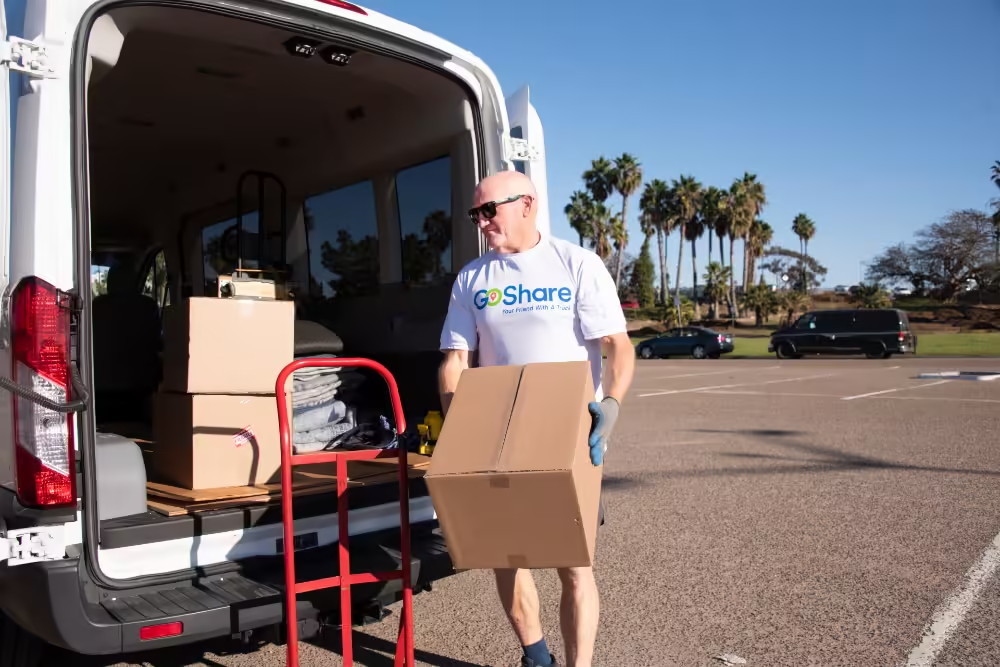In the UK, delivery driver jobs are in high demand, with the growth of e-commerce and the need for efficient logistics services. Whether you’re delivering packages for large companies like Amazon, or food through services like Uber Eats and Deliveroo, the delivery driver role is a flexible and often lucrative option for many workers. This guide will cover the essentials of delivery driver jobs in the UK, including the types of delivery jobs available, the requirements, how much you can earn, and what to expect from the job.
Types of Delivery Driver Jobs in the UK
- Parcel Delivery Driver
These drivers work for logistics companies, delivering parcels to homes and businesses. The most well-known companies offering parcel delivery jobs include Amazon, Royal Mail, DHL, Hermes (now Evri), and Yodel. Drivers for these companies typically use their own vehicles or company-provided vans, depending on the role. - Food Delivery Driver
With the explosion of food delivery apps like Uber Eats, Deliveroo, Just Eat, and Domino’s Pizza, food delivery is another popular option. Food delivery drivers typically use bicycles, scooters, or cars to deliver meals from restaurants to customers. Food delivery jobs often offer flexibility, making them attractive to students or those seeking part-time work. - Courier or Van Driver
Couriers are responsible for transporting goods from one place to another, usually across longer distances than the typical parcel delivery driver. They may deliver a range of items such as documents, small packages, or industrial equipment. Many couriers work for specific companies, while others may be self-employed. Van drivers often work for logistics firms, and their duties can vary from regional deliveries to nationwide transport of goods. - Taxi and Ride-Hailing Driver
While technically not a “delivery” driver in the traditional sense, drivers for services like Uber, Bolt, or Ola are often considered part of the broader gig economy. These drivers take customers from one location to another but may also have opportunities to deliver packages or items on the side. - Self-Employed Delivery Driver
Many drivers in the UK choose to work as independent contractors, delivering goods and services for various companies. Being self-employed offers flexibility and the potential for higher earnings, but it also means handling your own expenses, taxes, and insurance. These drivers can choose which companies to work with, setting their own schedules.
Key Requirements for Delivery Driver Jobs
- Driving Licence
To become a delivery driver in the UK, you need a valid driving licence. The exact type of licence required depends on the vehicle you’ll be using. For example, a full UK driving licence is necessary for delivery drivers using cars or vans, while larger vehicles or HGVs (heavy goods vehicles) require specific licences. - Vehicle Requirements
Some delivery roles require drivers to use their own vehicle, while others may provide one. If you’re delivering packages using a car, your vehicle will need to be reliable, with enough space to accommodate the parcels. For food delivery, a scooter, bicycle, or car may be required. If you’re working for a logistics company, you might be given a van, but in self-employed roles, you’ll need to cover vehicle costs and maintenance yourself. - Insurance
Delivery drivers need specific insurance to legally drive for work purposes. For example, if you’re delivering food or packages, you’ll need business insurance, which differs from regular personal car insurance. It’s essential to ensure your insurance covers commercial use, as regular car insurance policies don’t usually cover deliveries. - Background Checks
Many employers in the delivery sector require drivers to undergo background checks to ensure they have a clean driving record and no serious criminal history. Some companies may also require a DBS (Disclosure and Barring Service) check, particularly for those handling sensitive items or working in specific industries. - Smartphone and App Knowledge
Many delivery jobs, especially in the gig economy, require you to use an app to accept, track, and deliver orders. This means you’ll need a smartphone with internet access and the ability to navigate various apps. - Physical Fitness
Depending on the type of delivery, you may need to carry heavy packages or make multiple stops throughout the day. For example, food delivery drivers often work in all weather conditions and may need to carry large orders up multiple flights of stairs. Being physically fit and able to handle the demands of the job is essential.
How Much Do Delivery Drivers Earn in the UK?
The earnings for delivery drivers in the UK can vary depending on the type of job, location, and whether you are employed or self-employed.
- Parcel Delivery Driver
For parcel delivery drivers working for large companies like Amazon, the hourly wage can range from £10 to £15 per hour, depending on experience, location, and the type of work. In some cases, drivers are paid per parcel or delivery, with earnings varying based on the volume of work completed. - Food Delivery Driver
Food delivery drivers for services like Uber Eats, Deliveroo, or Just Eat typically earn between £8 and £12 per hour. The pay structure varies: drivers may earn a base rate per delivery, tips, and incentives for completing certain numbers of deliveries. Busy areas, like city centers, tend to offer higher pay, especially during peak times. - Courier Driver
Couriers who transport larger items or work for specialized companies might earn £100 to £150 per day or more, depending on the volume and distance traveled. Self-employed couriers can earn significantly more, but they must cover vehicle costs, fuel, and insurance. - Self-Employed Delivery Driver
Self-employed delivery drivers have more control over their earnings but also take on more financial responsibility. The amount you can earn depends on how many hours you’re willing to work, how many deliveries you complete, and whether you’re covering your own vehicle expenses. Many self-employed drivers in the gig economy report earning between £8 and £15 per hour.
What to Expect from the Job
- Flexibility
One of the main benefits of becoming a delivery driver in the UK is the flexibility it offers. Most companies allow you to choose when you want to work, which can be an excellent option for students, parents, or anyone looking for part-time or full-time work. Many delivery apps enable drivers to log in and out whenever they choose. - Long Hours
While the job can offer flexibility, delivery driving can also involve long hours. Some drivers work early mornings or late nights, especially during busy times like weekends or holidays. Delivery drivers in busy cities may find themselves working during rush hours, which can be stressful and time-consuming. - Physical Demands
Depending on the type of delivery job, you may be required to carry heavy packages, navigate busy streets, or deliver items in challenging weather conditions. Food delivery, for example, requires drivers to be agile and sometimes deal with difficult parking or weather-related delays. - Income Fluctuations
Especially for self-employed drivers or those working for gig economy platforms, income can fluctuate based on demand, location, and the time of day. While some days might be lucrative, other times, especially during quieter hours, can be less profitable.
Pros and Cons of Delivery Driver Jobs
Pros:
- Flexibility: Set your own hours, especially for gig economy roles.
- Independence: Work on your own with little supervision.
- Tips and Bonuses: Many drivers earn additional income through tips and performance bonuses.
- Job Availability: With the growth of online shopping and food delivery services, there is no shortage of delivery opportunities.
Cons:
- Expenses: Self-employed drivers must cover the cost of fuel, insurance, and vehicle maintenance.
- Stressful: The job can involve tight deadlines, dealing with traffic, or navigating difficult weather conditions.
- Inconsistent Earnings: Pay can fluctuate, particularly for gig economy workers or those relying on tips.

